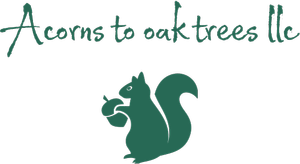Digital Marketing and Keyword Research: Unlocking the Language of Your Audience
Unlocking the Language of Your Audience

If you haven't checked out last week's post, you should do that before getting started here. Mastering SEO for Content Strategy: A Digital Marketer's Guide to SEO
Now, let's dive deep into the critical aspect of keyword research in the context of SEO for content strategy and branding.
Keyword Research: Unlocking the Language of Your Audience
Keyword research is akin to deciphering the language your target audience speaks when they search for information online. By understanding their search queries, you can tailor your content to match their needs and intent, leading to higher visibility and engagement. Here's a step-by-step breakdown of effective keyword research:
1. Identify Your Niche and Topics
Begin by identifying the primary topics or themes relevant to your brand, products, or services. These topics will form the basis for your keyword research. For example, if you're a fitness brand, your topics could include "weight loss," "healthy recipes," and "workout routines."
2. Brainstorm Seed Keywords
Seed keywords are the basic terms related to your chosen topics. These are the starting point for generating more specific and relevant keywords. Using the fitness brand example, seed keywords could be "weight loss tips," "healthy meal plans," and "best cardio exercises."
3. Utilize Keyword Research Tools
There are various keyword research tools available, both free and paid, that can provide insights into search volume, competition, and related keywords. Google Keyword Planner, Ubersuggest, SEMrush, and Ahrefs are popular options. Input your seed keywords into these tools to generate a list of potential keywords.
4. Long-Tail Keywords
Long-tail keywords are longer and more specific phrases that reflect the user's intent more accurately. They often have lower search volumes but can bring in highly targeted traffic. For instance, "low-carb meal plans for weight loss" is a long-tail keyword within the fitness niche.
5. Analyze Competition
Look at your competitors' websites and content to see what keywords they are targeting. This can provide valuable insights into gaps in your content strategy and help you identify keywords that are driving traffic to their sites.
6. Consider User Intent
Understanding user intent is crucial. Are users searching for information, looking to buy, or seeking solutions to a problem? Keywords can be classified into informational, transactional, and navigational intent. Align your content with the user's intent to provide the most relevant answers.
7. Evaluate and Select Keywords
Not all keywords are created equal. It's important to assess the search volume (how many people are searching for the keyword) and the keyword's competition (how difficult it is to rank for the keyword). Ideally, you want to target keywords with a reasonable search volume and manageable competition.
8. Monitor and Refine
Keyword research is an ongoing process. Monitor the performance of the keywords you're targeting. If you're not getting the desired results, consider tweaking your strategy. Additionally, keep an eye on emerging trends and shifts in user behavior to adapt your keyword strategy accordingly.
Benefits of Effective Keyword Research for Branding
Keyword research isn't just about optimizing content; it's a powerful tool for enhancing your brand's identity and messaging:
- Audience Alignment: By understanding the language your audience uses, you can create content that resonates with them, strengthening your brand's connection.
- Solution-Oriented Approach: Addressing the specific problems and needs your audience has through keywords shows your brand's commitment to solving their challenges.
- Competitive Edge: In-depth keyword research can uncover gaps in your competitors' content strategy, allowing you to stand out and offer a unique perspective.
- Brand Perception: When your content consistently appears in search results for relevant keywords, your brand gains credibility and recognition, contributing to a positive brand image.
Remember, keyword research isn't just a one-time task; it's an ongoing process that evolves as your audience and the digital landscape change. Incorporating the insights gained from keyword research into your content strategy can lead to more impactful and relevant branding efforts, helping your brand resonate with the right audience and leave a lasting impression.
Using Social Media to Make Money Online, Digital marketing, travel tips and destination ideas, saving money




